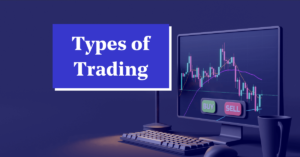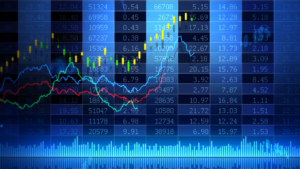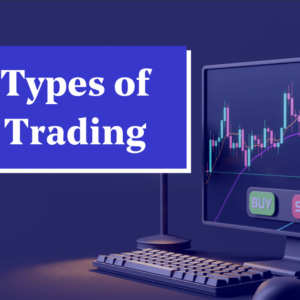Types of Trading in the Stock Market
Types of Trading in the Stock Market
There are various types of trading strategies employed in financial markets. While the classification of trading types can vary based on different criteria, here are four common types:

Types of Trading in the Stock Market
- Intraday Trading. Intraday trading, also known as day trading, involves buying and selling stocks within the same trading day. …
- Scalping.
- Swing Trading.
- Position trading.
- Momentum trading.
- Technical trading.
- Fundamental trading.
- Delivery trading.Trading can be classified into various types based on different criteria and strategies. Here are some common
Here are some common Types of Trading in the Stock Market
- Day Trading: Involves buying and selling financial instruments within the same trading day, aiming to profit from short-term price movements. Day traders often rely on technical analysis and trade frequently throughout the day.
- Swing Trading: Traders hold positions for a few days to weeks, aiming to capture short- to medium-term price movements. Swing traders use both technical and fundamental analysis to identify potential opportunities.

- Position Trading: Traders hold positions for an extended period, ranging from weeks to months or even years. This approach relies heavily on fundamental analysis and aims to capitalize on long-term market trends.
- Scalping: A high-frequency trading strategy where traders make numerous small trades throughout the day, aiming to profit from small price movements. Scalpers hold positions for very short periods, often seconds or minutes.
- Algorithmic Trading (Algo Trading): Involves using computer programs and algorithms to execute trades automatically based on predefined criteria. These algorithms can analyze market data and execute trades at a speed and frequency impossible for humans.
- High-Frequency Trading (HFT): A subset of algorithmic trading where traders use sophisticated algorithms to conduct high-speed and high-volume trades, taking advantage of small price discrepancies.
- Options Trading: Involves trading options contracts that give the buyer the right, but not the obligation, to buy or sell an underlying asset at a specified price within a certain time frame. Options trading strategies can be used for speculation, hedging, or generating income.
- Forex (Foreign Exchange) Trading: Involves trading currencies in the foreign exchange market. Forex traders aim to profit from fluctuations in currency exchange rates.
- Commodity Trading: Involves buying and selling commodities such as gold, oil, agricultural products, etc. Traders may trade commodity futures contracts or physical commodities.
- Cryptocurrency Trading: Involves buying and selling cryptocurrencies like Bitcoin, Ethereum, etc., within various cryptocurrency exchanges.
These types of trading can be further categorized based on trading styles, market focus, instruments traded, and time horizons. Traders often choose their preferred type or combine multiple strategies based on their risk tolerance, expertise, market conditions, and investment goals.

If you are a beginner in stock market trading and want to learn the proven and profitable strategies of stock market, you can opt for our trading courses which will make things easier for you.
[contact-form][contact-field label=”Name” type=”name” required=”true” /][contact-field label=”Email” type=”email” required=”true” /][contact-field label=”Website” type=”url” /][contact-field label=”Message” type=”textarea” /][/contact-form]

